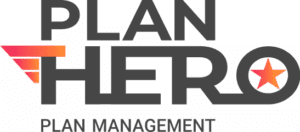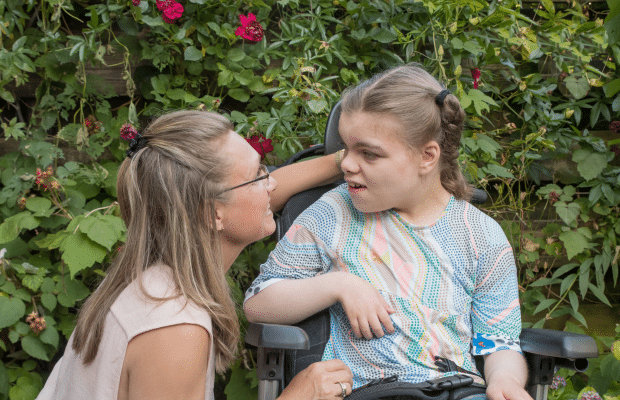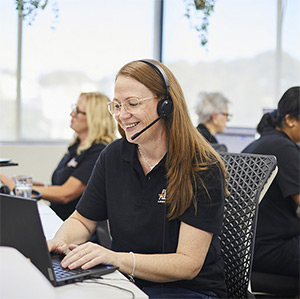Parenting is the hardest job in the world, and caring for a child with a disability is no easy feat â it’s often selfless and exhausting not to mention that we don’t get paid to do it! Too often, parental self-care takes a backseat and we end up feeling overwhelmed and unsure of what supports are available to help us not just stay afloat but thrive when it comes to supporting and caring for children at every age.
Add to that the constant NDIS reminders that certain supports should be ‘a parents responsibility’, and it’s enough to make you want to pull out all your hair! In this resource we cover the complexities of NDIS and parental self-care, balancing responsibilities and wellbeing, and where appropriate, how you can use your child’s NDIS funding to balance these needs.
- The importance of self care and balancing responsibilities
- What does NDIS deem a ‘parental responsibility’
- What NDIS supports can help me as a parent or carer to support my child?
- What NDIS budgets can I use for these supports?
- Changes in the Legislation – how does it affect support for parents
- What goals are related to supporting parental wellbeing?
Potential Risks
When you are not able to prioritise or focus on your self-care, and don’t have the right supports in place this can lead to a number of risks, such as:
- Physical & Emotional burnout
- Fatigue
- Increased stress levels & illness
- Impact on relationships with other family members
- Impact on your ability to care for your child and/or other family members
Positive Outcomes for your child
On the other hand, when you are able to access supports and build skills and knowledge on how to prioritise your wellbeing as a parent/carer there are a range of really positive outcomes that can come from it for your child, including:
- Increased autonomy & independence for your child
- Better quality of care when you develop appropriate parenting/carer coping strategies and skills
- Better advocacy for your child with evidence based information behind you
- Renewed energy and resilience
- Reduced stress and anxiety for you and your child
- Enhanced social connections for your child and skill development/independence as they learn to depend on you less
- The child’s age and age-appropriate skills
- The capacity of the parent/carer to support and care for the child and support to navigate the NDIS
- The level of support required based on the child’s disability needs
- If providing supports is impacting the parents ability to work
- If providing supports is impacting the parents ability to support other children or they have more than one child requiring disability related supports
- Support workers & mentors – They can provide assistance in using and building skills day to day at home and out in the community such as self-care, getting out of the house or doing age-appropriate tasks around the house.
- At home nursing support – Available for higher complex needs
- Therapies – Occupational therapy, Physiotherapy, Early Childhood Educators/supports, Speech therapy etc to manage their disability specific needs. Parental involvement in these sessions is strongly recommended as working alongside your child’s therapists can help you enhance YOUR skills and learn what strategies you can implement at home to help better support your child
- Respite options – up to 28 days per year (14 days at a time), if CORE funding is available for this and age-dependent. This is funding for your CHILD to attend respite with a support worker or caregiver to provide temporary relief to primary caregivers while also increasing your child’s autonomy and independence
- Parent & Carer training – training to support parents and carers in understanding their child’s disability specific needs and building the skills to implement these skills day to day and to be advocate for their child
- Skill development supports – You may need to consider age-appropriate skills to determine if support and training is better suited to the parent or a support worker/mentor but this may include toileting, self-care, self-feeding skills, public transport safety, decision-make, social skills development
- Assistance With Daily Activities (CORE) – Support Worker
- 01_002_0107_1_1 – 01_405_0104_1_1 – Assistance With Self-Care Activities – (standard to high intensity)
- 01_045_0115_1_1 – 01_065_0115_1_1 – Short Term Accomodation And Assistance (Inc. Respite 1:1 – 1:4)
- Consumables (CORE) – Low cost assistive technology to assist with self-care, toileting, communication, mobility etc.
- 03_040000919_0103_1_1 – 03_222100911_0124_1_1 – Low-cost AT items for Personal Care & Safety, Communication or Cognitive Support, Hearing related AT, Vision Related AT, Personal Mobility, Prosthetics and Orthotics or Disability-Related Health Consumables
- Assistance with Social, Community & Civic Participation (CORE) – Support Worker
- 04_104_0125_6_1 – 04_404_0104_1_1_T – Access Community Social and Rec Activ (standard to high intensity)
- 04_102_0136_6_1 – 04_604_0104_6_1 – Group Activities (standard to high intensity)
- 04_111_0136_6_1 – 04_184_0136_6_1 – Group Activities in the community or a centre (Standard – 1:1 – 1:5)
- 04_116_0104_6_1 – 04_209_0104_6_1 – Group Activities in the community or a centre (High Intesity – 1:1 – 1:5)
- 04_210_0125_6_1 – Community Social and Recreational Activities
- Increased Social & Community Participation (CAPACITY BUILDING) – to access community activities and skill development support
- 09_006_0106_6_3 – Life Transition Planning Incl. Mentoring PeerSupport And Indiv Skill Develop
- 09_009_0117_6_3 – Skill Development and Training
- 09_008_0116_6_3 – Innovative Community Participation
- 09_011_0125_6_3 – Community Participation Activities
- Improved Daily Living (CAPACITY BUILDING)
- 15_035_0106_1_3 – Assistance With Decision Making Daily Planning and Budgeting
- 15_037_0117_1_3 – Skill Development And Training including Public Transport Training
- 15_038_0117_1_3 – Training For Carers/Parents
- 15_045_0128_1_3 – Community Engagement Assistance
- Support Coordination (CAPACITY BUILDING)
- 07_001_0106_8_3 – Level 1: Support Connection
- 07_002_0106_8_3 – Level 2: Coordination of Supports
- 07_004_0106_8_3 – Level 3: Specialist Support Coordination
To find out more about the specific NDIS rates that providers can charge you for each of these supports, simply search the line items/codes using our easy NDIS price guide
- Improved Daily Living (CAPACITY BUILDING)
- 15_038_0117_1_3 – Training For Carers/Parents
What are some keywords you can use to relate your goals to these needs?
- Decision making
- Respite
- Build autonomy & Independence
- Social engagement & skill development
- Supporting/maintaining family dynamics & relationships
- Parent carer & training
Let’s look at some of the outcomes that may want your child to achieve by maintaining YOUR self-care as a parent or carer:
- Getting ready on their own for school, work or daily life
- Building skills around self-care such as toileting, self-feeding, grooming
- Getting out of the house, or into the community on their own (when they are at an appropriate age to do so)
- Being able to rely on other people for support (when they are at an appropriate age to do so)
- Building confidence and making their own decisions
- Respite and a break from always having parents/carers look after them
- Maintaining good relationships within the family and supportive family dynamics
- Moving around confidently and comfortable at home or in public, with less or alternative assistance where available
How might these goals look in my plan?
You can link the keywords/skills and outcomes shown above to create a goal:
- Access to regular care relief to allow my child to be less dependent on me and gain more autonomy and be comfortable around others
- I’d like my child to move around the house and go out into the community on their own, without relying solely on me
- I would like to access a service to implement my child’s NDIS Plan so I can navigate the NDIS in detail, connect with providers and coordinate their supports efficiently.
- I would like my child to engage in the community and learn skills to build their independence and autonomy
- I would like training and support as the primary parent/carer to support my child with their disability related needs and enhancing their independence and autonomy both inside and outside the home
- I (child) would like assistance to maintain my informal support so they can continue caring for me.
For more tips and resources on writing GREAT NDIS GOALS – Go to our handy resource: Setting NDIS goals for your planning meeting
- Wait until your plan reassessment and discuss this goal and funding at that stage
- Request an EARLIER plan review with your LAC/NDIS representative. You will need gather reports from your current therapists and explain why this additional funding is required or if there has been a change in circumstance
Who do I contact to discuss this funding?
It is best to call your NDIS representative or LAC to discuss your options if you wish to have additional funding included specifically for these supports. In most cases, you may be required to submit additional supporting evidence, or justification as to why your current funding is insufficient or doesn’t meet your goals.



